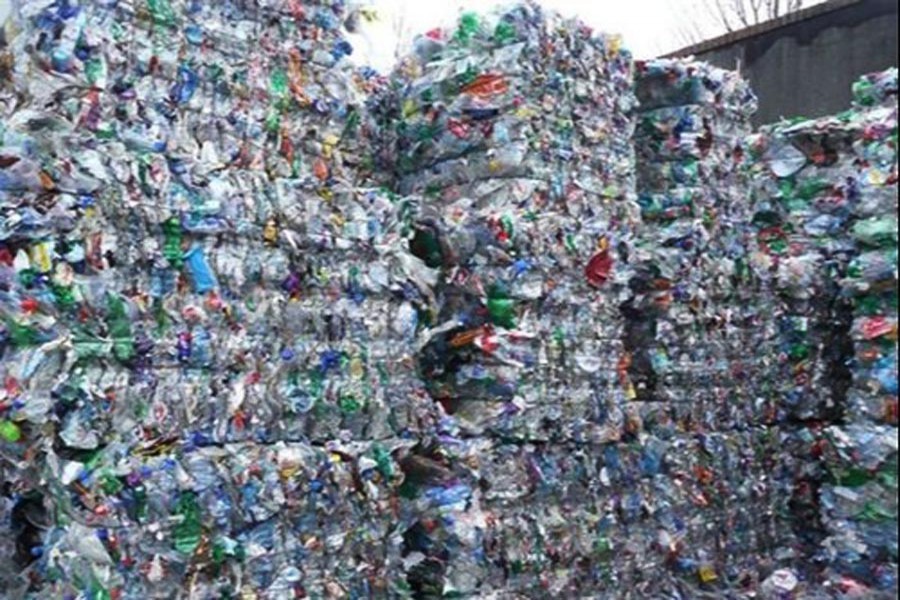1.2m tonnes of plastic waste shipped to Bangladesh

Dhaka, 15 February, 2021: As many as 1.2 million tonnes of plastic waste were shipped to Bangladesh in three years since 2017, although there is a legal ban on importing any sort of waste to the country.
Besides, some unscrupulous traders are illegally importing those toxic waste items and using the country as a transit place to further send those to third countries, thus facilitating trans-boundary movement of the toxic waste.
But, while contacted, the government officials concerned told the FE that they do not have any information on illegal waste import and using Bangladesh as a transit place.
The illegal plastic waste consignments were shipped to Bangladesh mainly from the US and the UK until 2019, according to a recent research of Environment and Social Development Organization (ESDO), revealed on Thursday.
ESDO Secretary General Shahriar Hossain told the FE: "Despite a ban from the Ministry of Commerce, some local traders and manufacturers illegally import or bring shipments of toxic waste from the countries like the US and the UK."
Traders bring those illegal items (single-use plastic items, medical plastic waste and other used plastic items) while they import raw plastic for local production, he illustrated.
"These waste items are very toxic and cannot be recycled. Traders cannot use these but dump on landfills here, putting a serious threat to the country's environment and public health."
Some unscrupulous businessmen further ship those items to third countries by using Bangladesh as a transit.
Officials in the ministries concerned, remaining anonymous, have confirmed ESDO of the import of illegal plastic waste, he added.
Malaysia recently sent back such shipments of a total of 150 containers, imported from 13 countries – including Bangladesh, as the consignments had non-recyclable plastic.
According to the ESDO report, in Bangladesh, 3,000 tonnes of plastic waste are being generated every day on an average. Among the collected plastic waste, 70 per cent were claimed to be recycled. Besides, around 73,000 tonnes of plastic waste are ending up in the sea through the Padma, Jamuna and Meghna rivers, making it the second most plastic polluted waterways in the world.
ESDO urged the government to promote cost-effective alternatives to single-use plastics and enforce a legal framework together with Basel Ban Amendment, UNEA resolution and Bangladesh Import Policy Order (2015-2018).
Razinara Begum, Director (waste and chemicals management) of the Department of Environment (DoE), told the FE that they are not aware of plastic waste import.
But the DoE will look into the matter, as import of waste to the country, including plastic waste, is banned.
"We have strongly opposed at policy level not to allow import of plastic waste. We have received application from the traders' side to allow plastic waste import to the country, but we allow only to recycle local plastic items."
"We also have a committee that regularly monitors, under the Basel Convention, an agreement to control 'Transboundary Movements of Hazardous Wastes and Their Disposal'," she mentioned.
As per the World Bank's (WB) assessments, there are a total of 1,083 illegal places of plastic debris in Dhaka City with no collection, producing 33,612 tonnes yearly, of which 30 per cent (10,083.6 tonnes) are directly discharged in the water.
Around 2,34,000 people died in Bangladesh due to environmental pollution in 2015, said the WB.
According to Bangladesh Plastic Goods Manufacturers and Exporters Association, around 14,09,094 million tonnes of raw materials have been imported to the country in the fiscal year 2018-2019.
Read More
.

